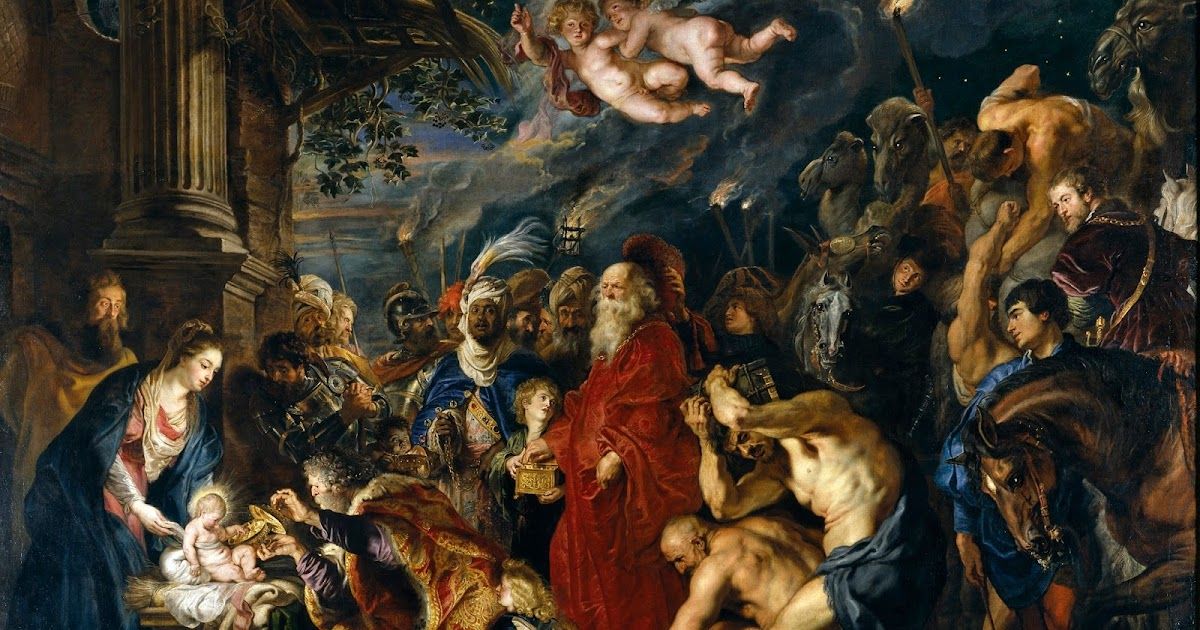
Date of the Magi's Arrival and Herod's Death Revealed
So, when did the Magi actually arrive in Bethlehem? The following information will hopefully make you feel a little better about the Magi’s seeming lack of travel enthusiasm. The Magi first saw what they thought were two wandering stars to their west in September of 3 B.C. These so called wandering stars were actually the planets Jupiter and Venus. They watched these two planets conduct three retrogrades directly above the nation of Judah. A retrograde occurs when a planet traveling in one direction appears to stop and move in the exact opposite direction. And the planets did this not just one time, or even two times but three times! Then, on June 17th, 2 B.C., they stopped and conjoined or stacked above each other. This created the brightest object ever seen in the night sky over the Middle East. The Magi knew that this was the sign their famous prophet Daniel had written about five hundred and fifty years earlier while in Babylon, concerning the birth of a great King and Messiah (Daniel 9:24-26).
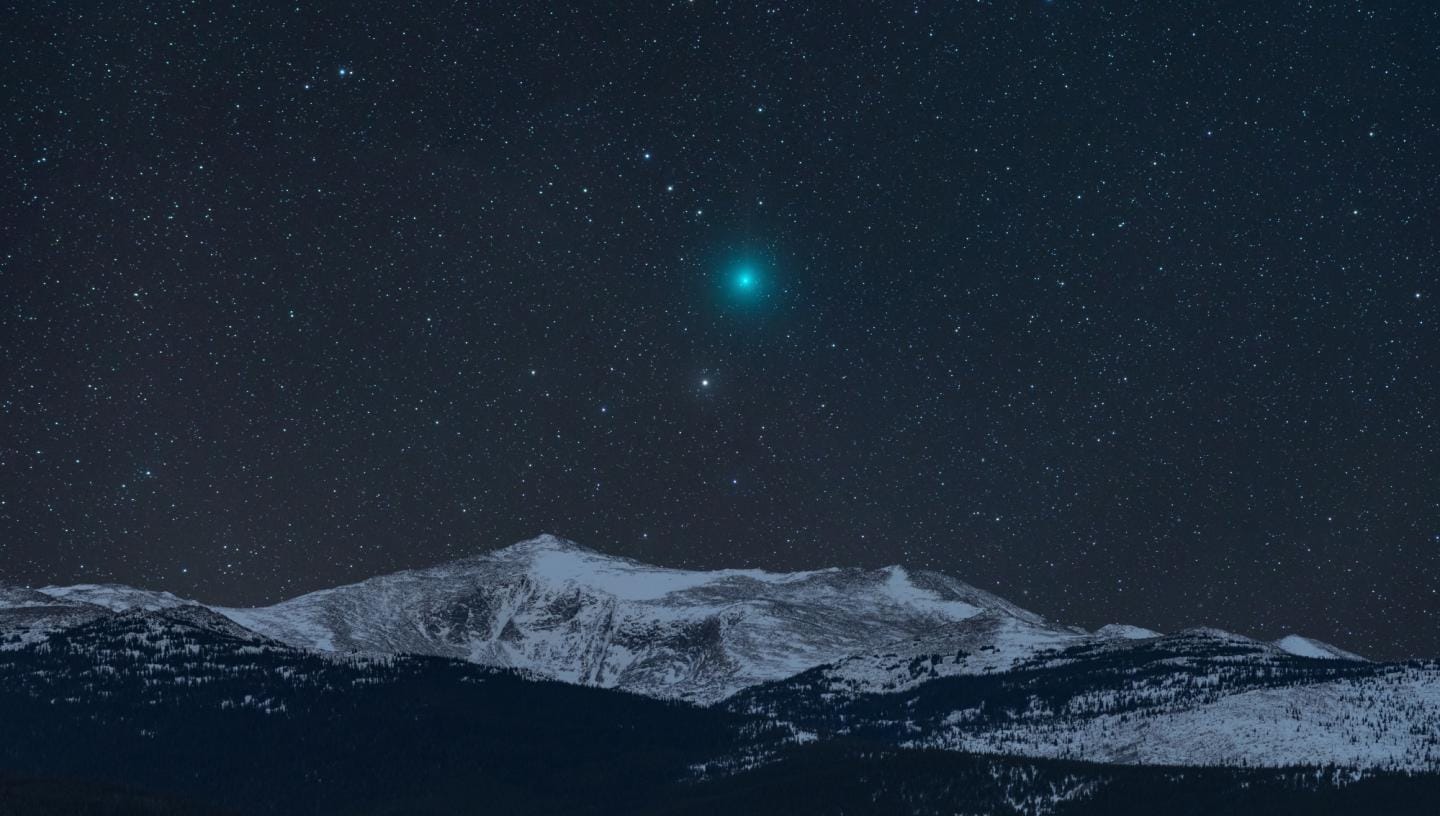
By the time of the birth of Jesus, Babylonian astronomy had advanced to the point where the five visible planets could be accurately tracked throughout the year. Astronomical almanacs that have survived from this period show a month by month account of lunar and solar eclipses, solstices, equinoxes, planetary positions in the night sky and conjunctions. All were accurately computed one year in advance. In 1609, Johannes Kepler discovered the math necessary to accurately track all the past, present and future positions of all planetary bodies.
In October of 2 B.C., the Magi departed the land of Babylonia and began a three month, nine hundred mile journey east to the homeland of Daniel. Isaiah had prophesied this event over seven hundred years earlier (Isaiah 60:3, 6). At this time, the Star was no longer as bright because Venus had moved away leaving the planet Jupiter for the Magi to follow. Jupiter was still in the constellation of Leo the lion and shining over the nation of Judah. As mentioned earlier, the Magi called the planets Wandering Stars and traveled to the place that Jupiter was slowly moving directly over. Jupiter wound retrograde on October 30th, November 25th and December 25th.
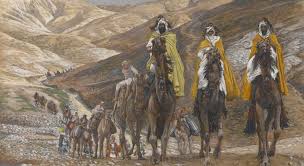
They arrived in Judah, then followed the exact same protocol they had performed for the past three months as they passed through many kingdoms both great and small. They came to the capital city of Jerusalem and immediately introduced themselves to King Herod the Great. The fact that Herod granted a special private audience with them proves that these men had attained a great reputation. Herod, in return, attached great importance as to who they represented and why they had come. They brought him a letter of introduction from the King of Babylonia along with gifts. They may have also passed on to him messages and gifts from various other heads of state that they had encountered on their journey. And, they might themselves have been official ambassadors of other empires that had come to pay homage to the new King on behalf of their rulers.
They then stated their purpose for the trip by asking, “Where is the one who has been born King of the Jews?” (Matthew 2:1-2). They may have assumed that this particular child would be Herod’s newest born. But they discovered to their dismay that not only did Herod not have a six-month-old infant, he was not even aware of the existence of the Star nor the prophecy of Micah and Daniel concerning a Messiah to be born in the village of Bethlehem. It was clear that the gentile Magi knew more about the birth of the Jewish Messiah than did the Jews He was sent to save and rule.
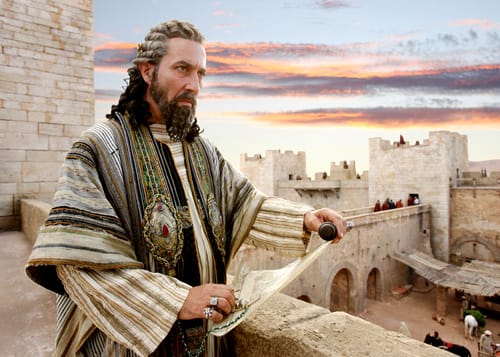
Herod was also extremely upset that the Magi referred to the child they were seeking as King of the Jews. This was the title the Roman Senate had officially bestowed upon him in 40 B.C. So, it was understandable that he immediately called for his advisors to explain to him what the Magi were talking about and why was he not alerted to this event (Matthew 2:3-6). It was a rabbi or more likely a scribe that was able to directly quote the prophecy of Micha concerning the King of the Jews being born in Bethlehem or in Hebrew the House of Bread (Micha 5:2-4).
The Gospel of Matthew states that when the Magi asked Herod, "...Where is He born King of the Jews … we have come to worship Him." … Herod was troubled and all Jerusalem with him." (Matthew 2:2-3) We now understand why Herod would be troubled hearing of a new born king, but why was all Jerusalem with him? After all, the people did not like Herod as their King, therefore, would they not welcome a new King? To better understand why both Herod and the people were troubled, one must understand how Herod rose to power and the fear he had concerning the affairs of the Magi.
Herod's reign had always been complicated as he was forced to deal with a number of deep seated and unresolvable problems. First and foremost was his pedigree. Herod's father Antipater was an Edomite from the tribe of Esau. Esau was seen by the Jewish religious leaders as a disgrace to their race and cursed by God. While Esau was the favored son of Isaac, he sold his spiritual rights as first born to his brother Jacob for a bowl of red lintel soup. Herod's father then married the daughter of an Arab nobleman from Petra in Jordan to increase his wealth and power. The Arabs were a race from Ishmael the first born son of Abraham by way of an Egyptian slave woman. The Arab race was always in conflict with the Jews and one more reason that Antipater and his son Herod were despised. But it gets even worse. When Roman general Pompey invaded Judah in 63 B.C., Antipater supported his campaign. Julius Caesar rewarded Antipater's loyalty to Rome by appointing him Procurator of Judah in 47 B.C., and gave him and his family Roman citizenship. That same year, Antipater appointed Herod governor of the Galilee region. In 41 B.C. Mark Anthony appointed Herod tetrarch of Galilee.
However, in 40 B.C. the Persian-Parthian armies came out of the east accompanied by Magi and invaded Judah. Their winning battle strategies against Rome were in part formulated by a sect of Magi schooled in military tactics. A civil war then broke out in Judah between those that supported Herod and Roman rule called the Herodians, and those who opposed Herod and supported Parthian rule. The Parthians had promised the Jews self rule over Judah as long as they paid an annual Tribute Tax. When the Romans lost control of Judah, Herod was forced to flee for his life to the safety of Rome. It was the Magi who were also relied upon to select kings for states captured by the Persian-Parthian armies. Meanwhile, the Roman senate promised Herod that they would retake the territory of Judah and gave Herod the title of King of the Jews. It would take Rome three years including a five month siege of Jerusalem to drive the Parthian armies out of Judah. In 37 B.C. Herod was thirty six years old and would now rule Judah with a iron fist for the next 36 years.
So now we can just imagine how Herod, in failing health and a paranoid schizophrenic, felt when he learn that a royal troupe of Magi had come out of the east from the direction of Persia and were heading straight for Jerusalem requesting to meet with him. When they told him they were searching for a new born King of the Jews, he went into an understandable full psychotic breakdown. Herod well knew that he was an illegitimate King trying to rule a rebellious population that despised him. To make matters worse, his kingdom was located between the Egyptian Empire, the Jordan Empire, the Persian Empire, the Syrian Empire and the Roman Empire all ready to fight proxy wars with each other using Judah as their battle ground of choice. Truly heavy was the head that wore the crown of the King of the Jews. He knew the Jews would gladly welcome the Parthians back in order to regain their ability to self rule. He was somewhat relieved to learn that they had not come to offer him an ultimatum to surrender his rule over Judah or go to war. But, now he had to deal decisively with the idea of a new born king that was not one of his own.
Herod understood that this type of rumor would give any male child born in Bethlehem at this time an excuse as an adult, to declare himself the prophesied King of Judea and lead a rebellion against the beginnings of his Herodian Dynasty. He also knew that he could not simply rush into the village and stir up the people as the Romans may still have been in the area conducting their census and taxation. Instead, it would be much smarter and cause the least uproar to first have the Magi find the child and his parents. Then, having reported back to him concerning their exact whereabouts, he could dispatch professional assassins under cover of darkness to quickly and quietly kill the family. This is why Herod met secretly with the Magi to find out the exact time they saw the Star (Matthew 2:6). He needed this information in order to do the math to determine the probable current age of the child. He told the Magi to located the family then let him know so that he could also come and worship the child (Matthew 2:8). But Herod’s idea of worship involved sacrificing the child.

The Magi then made the four mile trip directly south of Jerusalem to the small village of Bethlehem (Matthew 2:9-10). Because it took probably three months of preparation and another three months of travel to arrive in Bethlehem, they found Joseph and Mary were now living in "a house" and Jesus was no longer a newborn but a six month old “young child” (Matthew 2:11). The Greek word for "house" as written by Matthew is kataluma. This word refers to an upper room in a private house not a public inn. The Greek word "young child" refers to a toddler. Today we think of a toddler as a one year old child or older that has learned to walk. But in the first century, the term toddler was used to describe a child that was no longer an infant but could turn itself over on its own, sit up. Joseph no doubt found a room to rent the day after the birth of Jesus. Joseph arrived in Bethlehem with the funds necessary to pay for a room, pay his taxes, purchase food and make a donation to the Temple. But, the Inn had no vacancies and Mary was in active labor. So, the Inn's adjacent cave which served as a stable for guests with pack animals was a quick solution. Joseph could immediately get her out of the crowded public streets and into a secluded space where she could give birth. Joseph was also apparently able to find work in the greater Jerusalem area because the Greek word used in Scripture to describe his trade meant he was considered a skilled artisan. He also assuredly had family contacts in the area as he was from the tribe of Judah, and Bethlehem was the tribal seat of the Judean territory. Thus, this was the location that he was required to go and report his estate holdings and pay a Roman tribute tax.
Joseph would have also planned to stay in Bethlehem for at least six weeks after Mary gave birth and here is why. First, he would want to give Mary the time to fully recover from her first birth experience as it was an arduous seventy mile trip back home to Nazareth. Second, according to Jewish law, Mary would need to wait eight days until Jesus could be circumcised in the Temple. Third, Jewish law stated that a woman who gives birth was ritually unclean due to an issue of blood. Therefore, she could not associate with other Jews for a prescribed period of time. For the birth of a male child, the wait was forty days and for a female child it was eighty days. However, the mother was allowed to attend the circumcision ceremony held on the eighth day after the birth, but she could only view the ceremony from a prescribed place located out of sight and with limited contact with parishioners. Scripture tells us that the couple took Jesus to the Temple on the eighth day to have him circumcised (Luke 2:21).
Since the Magi located the family living in a house and Jesus was six months old, this means that Joseph had obviously decided to stay in Bethlehem for the foreseeable future. Also to be considered was the fact that Joseph, as a healthy male, was required by Jewish law to go to Jerusalem at least three times a year to observe the Feast of Passover in the spring, Pentecost in early summer and Rosh Hashanah in the Fall. So, he apparently decided to stay in Bethlehem beyond the original six weeks to celebrate the Fall feasts in early September. Many of the men and women of Nazareth would have attended the Fall feasts and he and Mary could have put them up in their house where they were introduced to the baby Jesus. For Joseph to have not returned to Nazareth with his family in late September can only mean that he had found lucrative work in the Jerusalem area and was planning an extended stay. True, he had built a room onto his family home in Nazareth for he and Mary to use. But, the families would understand his staying in Bethlehem if he had continuous work that paid well. And, they could visit him at least three times a year or more when they attend the seven annual feasts.
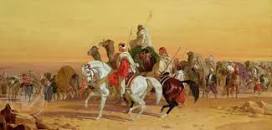
While the magi were easily able to locate the family in the small village of Bethlehem, the entire Magi entourage would not have been remotely able to fit in the average first century Jewish home. Therefore, the majority of men, animals and supplies would have been camped just outside the village in an adjacent field. Scripture tells us that Magi {plural} came to the house, bowed before the young King as was the tradition and presented Him with at least three gifts. Scripture tells us that the Magi came from several or “up-aim places,” in the East (Matthew 2:1). So, it could be reasonably assumed that there were more than three Magi that made the journey. The fact that the group presented three gifts by three different people representing the larger group would not have been unusual considering the physical size of the family’s lodgings. But we can also assume that all the Magi were eventually allowed to pay their respects to Joseph and Mary and participate in the gift presentation and worship ceremony of Jesus as a future King.
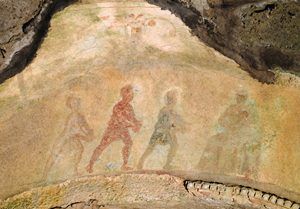
By the early sixth century, a Greek manuscript stated there were three Magi that presented three gifts to the family. The oldest Magi was named Melchior which means "the king is my light". It is a name often mentioned in Assyrian and Babylonian texts. He brought the gift of gold to signify kingship. The second oldest was Balthazar a name derived from the Babylonian name Bel-shar from the Book of Daniel and means "O Lord protect the king". He brought frankincense to signify Holiness. And the youngest was Gaspar or Caspar a Parthian name and the people who ruled Persia in Matthew's time. He brought myrrh which traditionally signified health and the ability to heal. Interestingly, myrrh was also used to embalm the dead. While some oral traditions say the three wise men were also kings, there is little probability that the king of a great nation would risk his life and kingdom to visit the tiny and insignificant nation of Judah. Instead, these names of the Magi suggest that they came from Babylon, a Parthian royal city and one of the most important centers of astronomical and astrological knowledge of the day. They were considered as kings because of their political power and great wealth.
Tradition tell us that these three Magi were said to have later met with the apostle Thomas in India and were baptized. They died and were buried within the walls of Jerusalem, but were later exhumed and moved to Persia. Empress Helena (248 A.D.-330 A.D.), the mother of Emperor Constantine, had the bodies exhumed in 325 A.D. and moved to Constantinople the capital of the Constantine Empire. In 1163 A.D. Roman Emperor Friedrich I presented the remains as a gift to the city of Cologne, Germany. The city then constructed the largest gothic cathedral in northern Europe in which to house their bodies. Today, over fifteen million people per year visit the tombs which are still on public display.
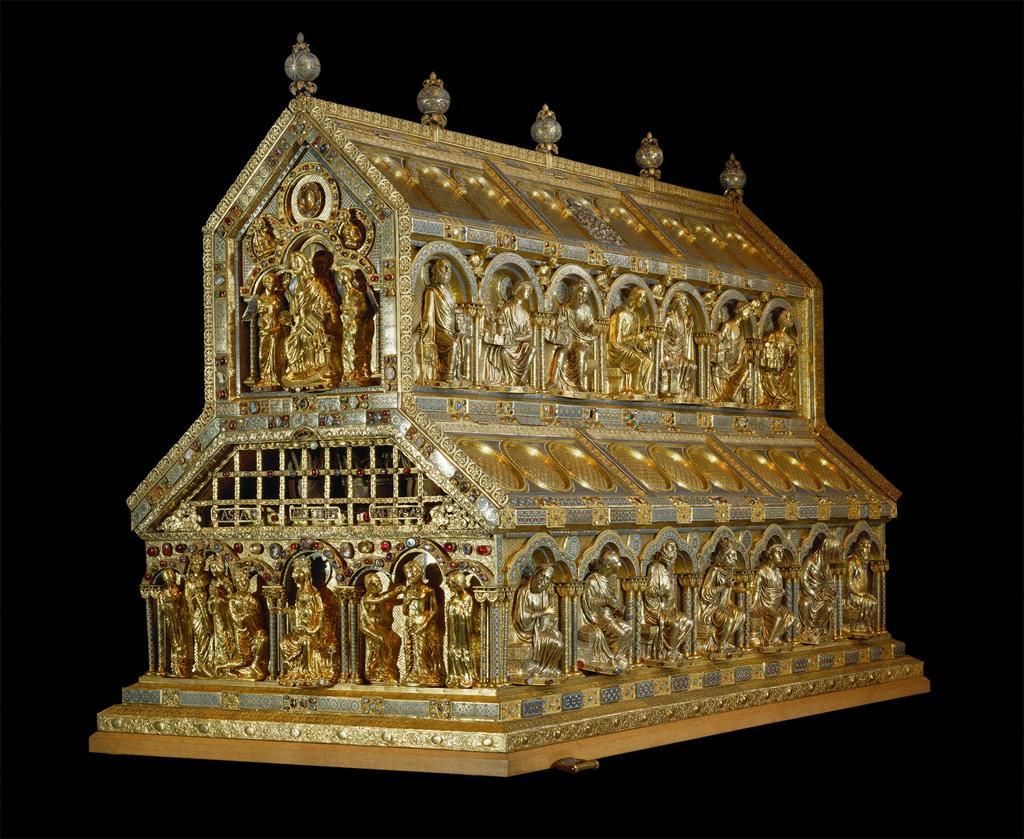
The arrival of the Magi would have caused a great stir in the small first century village of Bethlehem. Why would these wealthy, educated and powerful men have come nine hundred miles just to give homage to a young Jewish peasant child? Surely this meant something of great importance was occurring. In fact, the event was so exceptional that, when the first century Christian church wanted to annually celebrate the birth of Jesus, this date of the Magi’s arrival in Bethlehem was the only one that was remembered by the locals. The actual birth date of June 17th was not remembered because no one other than a few shepherds knew about Jesus’ birth on this date. Remember, Mary went into labor just as they arrived in Bethlehem. They were turned away from the local inn so they quickly went into the adjacent stable where she delivered most probably with only the help of Joseph. Some scholars have supposed that the innkeepers wife or a midwife assisted with the delivery. However, Scripture only mentions Mary and Joseph as being present at the birth. Only a few shepherds were then notified about the birth and went to see the child. When they arrived at the inn and were directed to the stable, they related to Joseph and Mary what they though was a message the Angel of the LORD wanted them to tell the parents. That being that their child was the Savior, Messiah and Lord (Luke 2:15-20). Mary would have empathized with the fear and awe they experienced as she had felt the same way when she met with the angel Gabriel in her parents home nine months earlier. Please read related, "The Annunciation of Mary." Joseph would have shown the shepherds out of the stable or shallow cave. Then the exhausted couple, fresh from a seventy mile trip from Nazareth and the birth of their first child, would have then fallen asleep in a stall, wrapped in blankets on a bed of hay. But, early the next morning, Joseph would have immediately gone out to find a room to rent and move his family out of the stable. As far as the village was concerned about the birth of Jesus, Mary was simply one of perhaps a dozen young Jewish peasant girls with a newborn.
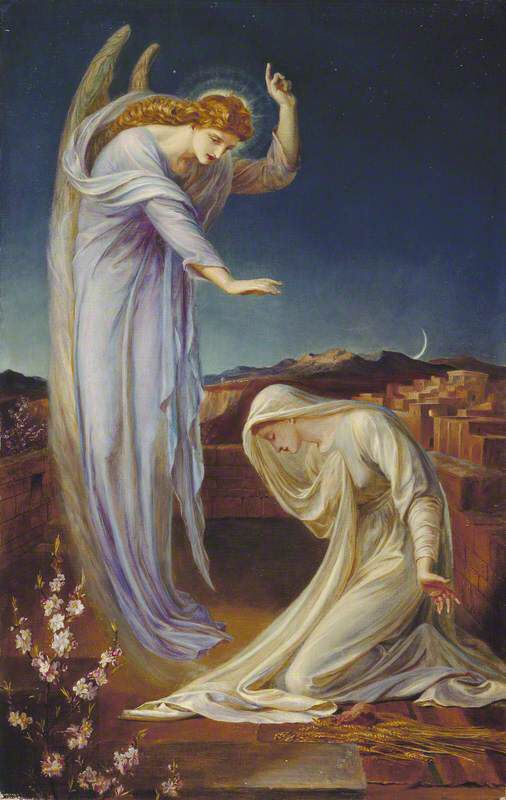
By the end of the first century, the early church began to look for a date to celebrate the birth of the Savior of the World. No one knew the exact date as those few connected with the actual birth event were now dead. To complicate matters, first century Jews did not annually celebrate a child’s birthday. They did celebrate on the actual day a child was born and on the day a child was weened. They also celebrated the day a child received its first haircut and the day the child mastered the basic doctrine and customs of the Torah. Today this event is known as a Bar mitzva. In the case of Jesus, He was quietly born in a stable and later visited by some Magi while living in a rental home. All other events took place in either Egypt the year His family hid there in exile, or later when they returned to their families and home in Nazareth. There were only two events that remained vivid in the minds of the people of Bethlehem where Jesus was unceremoniously born. That day when a large entourage of Magi visited the village on December 25th. And several days later when King Herod ordered the murder of several dozen village newborns, infants and toddlers. They would not have remembered the actual birth of Jesus because it was intentionally kept a secret by His parents. Thus, the statement in the Gospel by Luke, “But Mary treasured all these things and pondered them in her heart” (Luke 2:19).
We now know that the arrival of the Magi was not the actual date Jesus was born, but it was instead correctly remembered as the date of the first celebration of His birth. And this tradition of celebrating His birth on December 25th has been passed down to us today. So even though December 25th is not the date Jesus was born, we should still celebrate on that day because it was the first recognition by wise men or Magi, that Jesus was worthy to be worshiped (Matthew 2:11). Remember, it is not only Jesus’ birth date we remember, but the fact that God became a man in order to bring salvation and eternal life to mankind. This is the miracle we are celebrating.
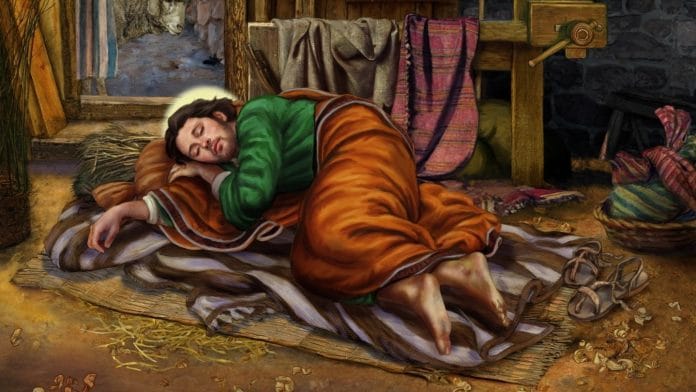
After presenting their gifts to Joseph and Mary, the Magi went back to their camp on the outskirts of Bethlehem to spend the night. They had probably planned to go back to Herod the following day to tell him they had found the child and then begin their long journey home. But their plans suddenly changed. That night as they slept, all of the Magi had the exact same dream. In the dream, they were warned by God not to go back and report to Herod. When they awoke the next morning, they were startled to learn that they had all had the exact same dream simultaneously. So, they immediately packed up and left for the return trip home using back roads so as not to draw attention from Herod’s border guards. Scripture does not mention that the Magi passed on their dream about Herod to Joseph, but simply left. However, an angel also spoke to Joseph in a dream after the Magi had left and told him to get up and take Mary and the “young child” south into Egypt for safety because Herod would soon try to murder Him (Matthew 2:12-15). Joseph immediately got up, packed some provisions and the three most useful gifts given to them by the Magi, and began their escape towards the Egyptian border sixty miles to the south.
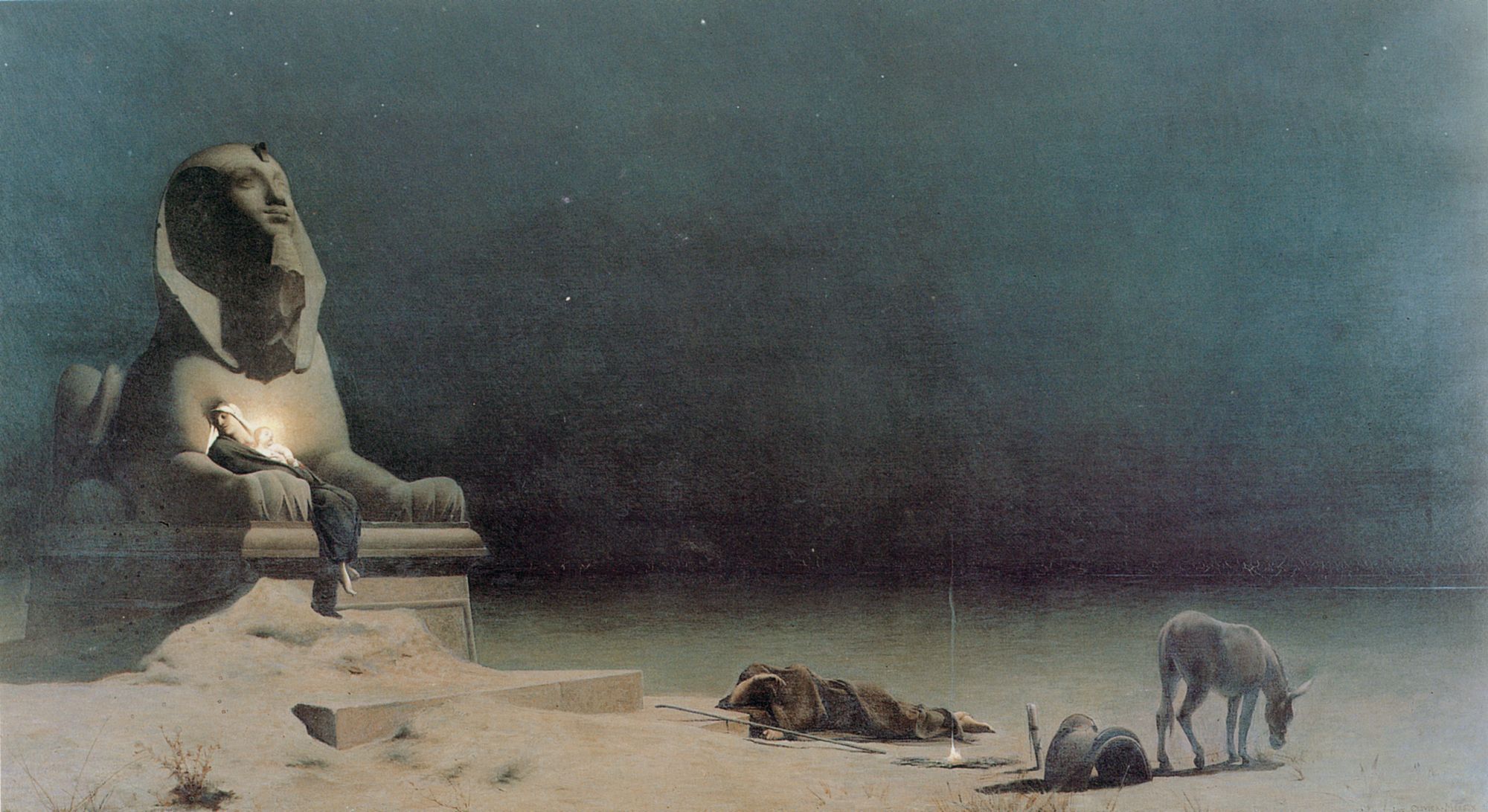
Herod waited impatiently several days for the Magi to return with a report as to where the newborn King could be found. He was eventually told by his advisors that the Magi had apparently left the kingdom a day or two earlier. He was also told that the entourage was not seen by border guards on the main routes into and out of the kingdom of Judah. This would mean that they must have deliberately ignored his instructions to them and intentionally returned home using obscure wilderness back trails (Matthew 2:12). Herod’s became furious that his command had been contemptuously ignored by the Magi. He must now immediately go to Plan B.
Herod had secretly met with the Magi to get a timeframe on exactly when the child was born so as to calculate how old he was at this time (Matthew 2:7). He was told that the zenith of the Stars conjoining was six months earlier. So, if the child was born in the month of June, it meant that He was now about six months old. But, the two wandering stars or planets, were said to have been dancing around each other starting on September 17th, 3 B.C. So, perhaps the child was born at that time, therefore, the child could be anywhere from six to sixteen months old. To play it safe, and to make sure this new would be King of the Jews was caught in his net, it was best to err on the side of abundant caution. Therefore, he decide to have all the male children in Bethlehem and the surrounding area two years old and younger murdered (Matthew 2:16-18). To aide in his decision making, Caesar’s recent census now contained an exact account of the number of children living in Bethlehem. Herod would have asked and been informed by his staff as to how many children would need to die to accomplish his goal. Scholars today estimate the number to be approximately two dozen. Herod was enraged that the Magi had forced him to take this drastic measure, but it was worth the public outcry in order to avert the future issues associated with multiple false Messiahs cropping up in Bethlehem.

And, just to show that Herod was an equal opportunity homicidal psychopath, he also had his own two year old son murdered. Because his health at this time was quickly failing, Herod had already appointed his two older sons to rule portions of the territory of Judah upon his death, and there was no room for a usurper to end his planned Herodian Dynasty. Herod did not know that his murderous plan had actually fulfilled the prophecy of Jeramiah concerning Rachel weeping for her dead children (Jeremiah 31:15).
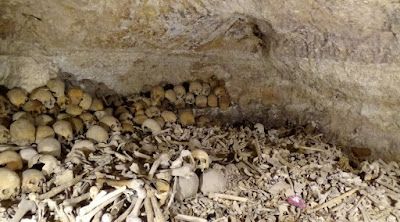
In the Paper titled “The Accurate Date of the Birth of Jesus”, it points out that scripture gives only four vague pieces of information concerning the time of Jesus’ birth. The only two that actually help us in our search are the appearance of the Star and the death of Herod the Great. Because past Bible scholars have dismissed the Star as an unknowable event, they have been forced to focus their research solely on the date of Herod’s death. The famous Jewish historian Josephus (37A.D-100 A.D.) wrote that "Herod died during an eclipse of the moon" (Flavius Josephus, “Antiquities”, 17.6.4). This is a tremendous piece of astronomical information and extremely important in establishing the actual timeline of the Birth of Jesus. Why? Because while we know Joseph and Mary left Bethlehem to escape Herod’s plans to kill Jesus, Scripture does not tell us when they left and when Herod died. It simply states, “but when Herod was dead”, an angel told Joseph in a third and final dream to take the family back into Judah (Matthew 2:19). According to Josephus, Herod died due to great fevers, ulcerated bowels, foul discharges, convulsions and intestinal parasites which caused great pains and a tremendous stench (Flavius Josephus, “Antiquities”, 17.6.5).
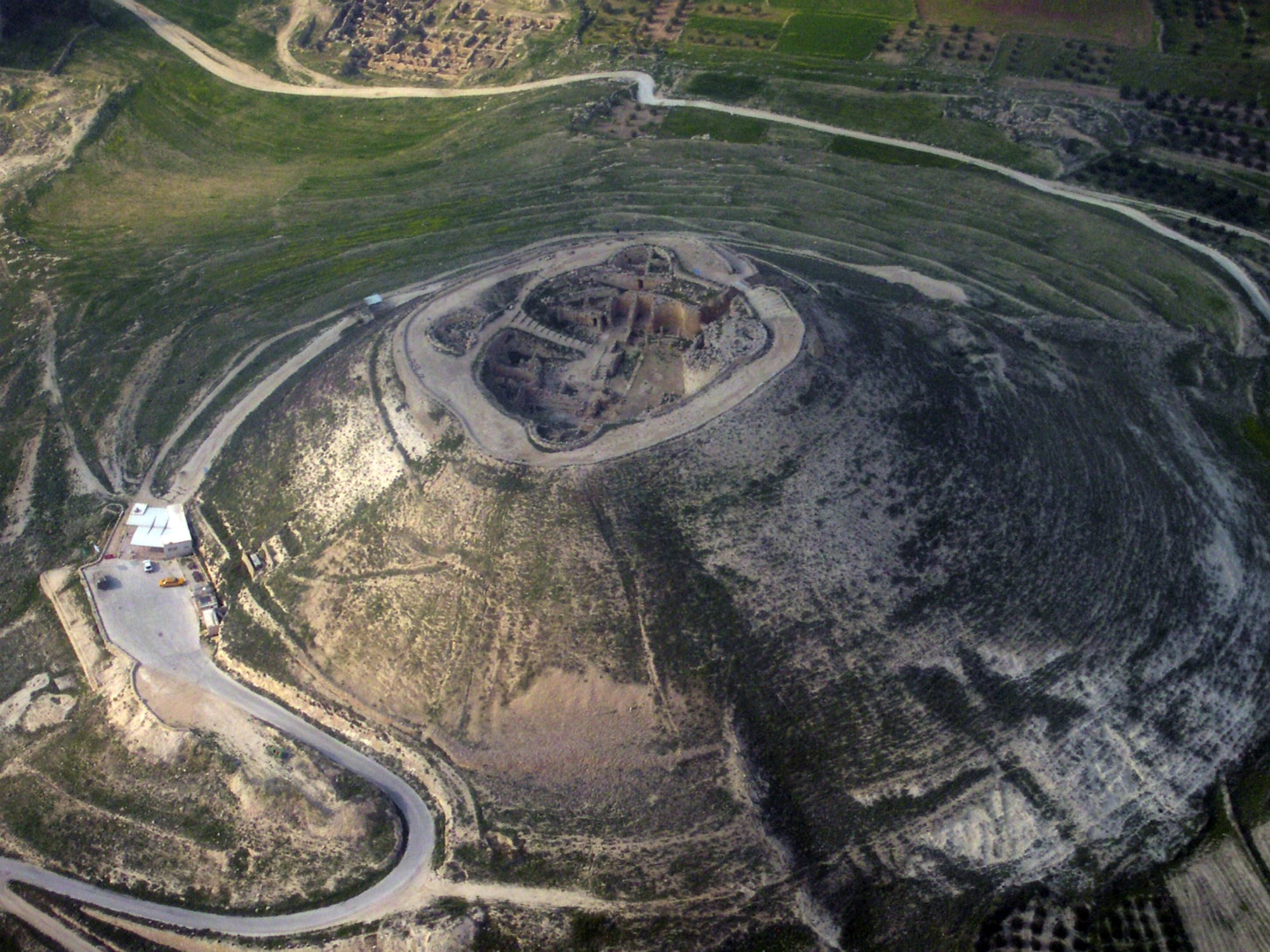
However, it is Josephus’ notation of a lunar eclipse at the death of Herod that has tripped up scholars to deduce erroneous dates concerning the birth of Jesus. As we run the NASA computer driven astronomical software backwards, we clearly see that there were three lunar eclipses between 4B.C. and 1B.C. That’s right… three! One in March of 4B.C. which occurred very late in the evening and was only visible as a partial eclipse. Of the two eclipses in 1B.C., one occurred in January and the second on December 29th. It was this last eclipse on the 29th that fits perfectly with the timeline of the arrival and departure of the Magi, They arrived on December 25th 2 B.C. They probably left Bethlehem on the 26th or 27th of December. Herod would have found out on the 27th or 28th and ordered the murder of the children on the 29th. God apparently put a curse on Herod for this horrific attack against His Son and the innocent children of Bethlehem. The curse caused Herod to literally and slowly rot from the inside out.
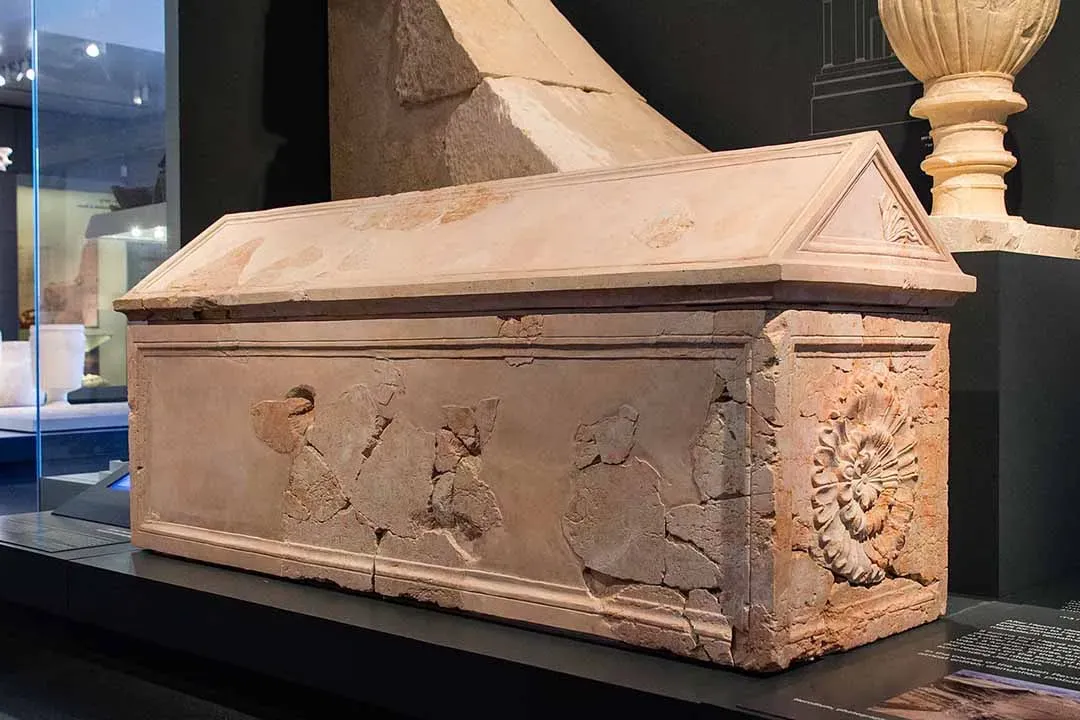
Today, medical science believe Herod suffered from kidney failure complicated by gonorrhea which caused gangrene that spread throughout his entire body (Amanda Onion, “Researchers Diagnose Herod the Great”, ABC News, Jan. 7th, 2006). Herod is said to have suffered tremendously both mentally and physically throughout the entire year of 1 B.C. Then, on December the 29th and during an eclipse of the moon, Herod died. This would have coincided with the one year anniversary of his order to murder the children of Bethlehem! Joseph was notified in a dream that Herod had died and that it was now safe for them to return to Judah. This would have been early in 1 A.D. thus, literally and figuratively a new beginning of a new era for mankind (Hosea 11:1).
There are three different classifications of lunar eclipses. The penumbral eclipse, which is a slight darkening of the moon, a partial eclipse in which only a part of the moon is darkened and a total eclipse in which the entire moon is darkened. A total eclipse is very dramatic and we would like to think that the wicked King Herod got a total eclipse. However, Josephus does not say the eclipse was total but only that there was one on the evening of his death. And it must have occurred after he ordered the children of Bethlehem and the surrounding areas to be killed. Which in turn means that this eclipse must have been at least six months after Jesus’ birth in June because of the visit of the Magi on December 25th. So, the eclipse of December 29th 1B.C is an exact fit with this timeline. Let us now review the timeline.
The planets or wandering stars, Venus and Jupiter came to within two degrees of separation of each other on June 17, 2 B.C. To the naked eye, they appeared to be a never before seen star of tremendous brilliance. All of Judah and Babylon saw it and when the Magi arrived in Jerusalem six months later, Herod and all the people became concerned as to what it meant (Matthew 2:3). In other words, the people saw the star but nothing happened for six months. Then the Magi with their royal entourage suddenly came through the gates of Jerusalem and rumors started to spread. June 17th was the day the Magi saw the two wandering stars merge and this conjunction is what prompted their three month, nine hundred mile journey west to Bethlehem. By the time they arrived, Jesus was a six-month-old living with His parents in a house (Matthew 2:11). On December 25th 2 B.C. they presented their gifts to Mary and the baby Jesus, spent the night back at their camp site, had a dream not to report back to Herod and immediately left for home (Matthew 2:12). That same night, Joseph was told in a dream by Gabriel to immediately go into Egypt to defeat Herod's plan to kill Jesus (Matthew 2:13). Herod learned one or two days later that he had been disobeyed by the Magi and ordered the killing of all Jewish boys two years old and under. This evidently occurred on December 29th as Herod would die exactly one year later on this same date during an eclipse of the moon (Matthew 2:16-18; Flavius Josephus, Antiquities 17.6.5).
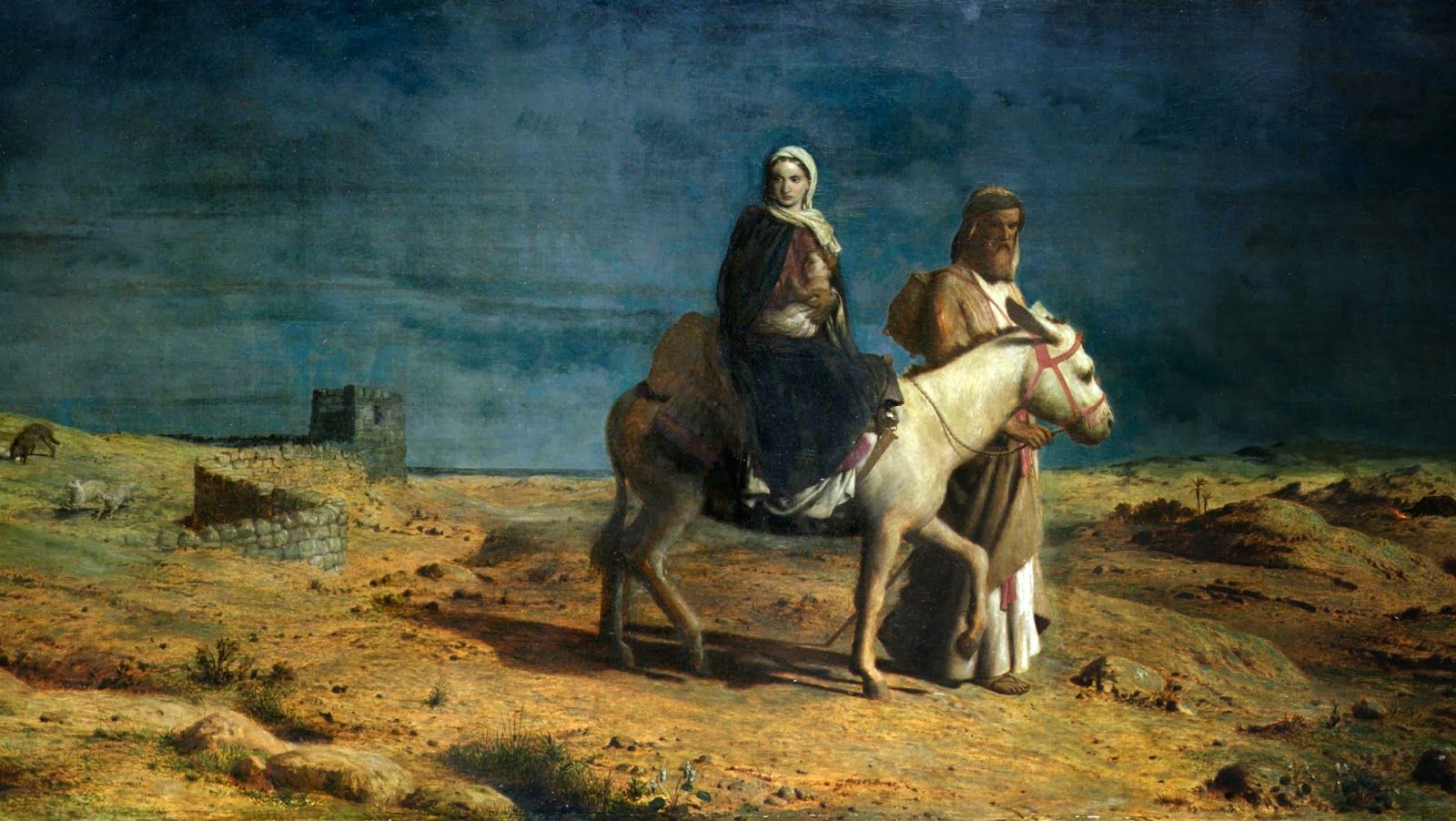
Joseph’s trade as a skilled builder would have allow him to find work in almost any Egyptian village or city. And, there were many Jews living in Egypt at that time who could help him find work to support his family. Joseph also had the Magi's gifts of gold, frankincense and myrrh that he could barter with to help support the family’s needs during this time period.
After Herod’s death, Joseph was told by God that he could now safely return to Judah. This was probably early in the year of 1 A.D. He had lived in Egypt almost exactly one year and was eager to take the newborn King of Judah back to His own country. We can now understand the prophecy of Hosea when he wrote, “I… call my son out of Egypt.” (Hosea 11:1) Joseph moved his family out of Egypt and apparently intended to move back to Jerusalem where he had found work just a year earlier. However, he learned that Herod’s son Herod Archelaus, now ruled the area of Jerusalem and living there would put Jesus’ life back in danger. Therefore, led by the Holy Spirit, Joseph decided to resettle the family back in Nazareth (Matthew 2: 19-23). Jesus was now an eighteen month old toddler.
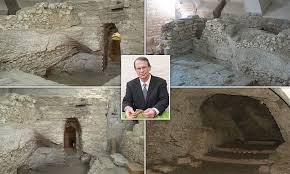
In summary, Jesus was born in a shallow cave that served as the Inn’s stable on June 17th 2 B.C. and was visited that night by a group of shepherds. Joseph moved the family in the following few days into a room he rented in a house. When Jesus was six months old, he was visited by the Magi on December 25th 2BC. This was the first celebration of the birth of Jesus and this date has remained the celebration date to this day. The family fled for their lives from Herod and moved to Egypt a few days after the 25th. Herod has the children of Bethlehem murdered later that same week. The murders most probably occurred on December 29th, 2 B.C. Herod is documented as having suffered in excruciating pain the entire last year of his life and then died during an eclipse of the moon. Modern astronomy clearly shows that there was a 58% eclipse of the moon on December 29th 1 B.C. This would have been the one year anniversary of his orders to murder the children. Jesus turns one year old on June 17th of 1B.C. while still in exile in Egypt. Joseph moves the family back to Judah in early 1 A.D. and Jesus turns two years old in his new home in Nazareth.
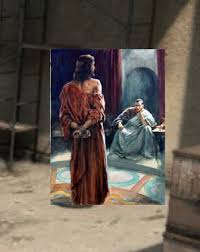
On a closing note, Scripture states that Joseph was told of Herod’s death and those that sought to kill Jesus (Matthew 2:19). So, who were those other people? It was most probably Herod's advisors who encouraged him to initiate the plan to murderer the children. These advisor would still have been in Herod's court a year later at his death. Also, Herod’s son Antipas was twenty one years old when his father died leaving him in charge of a territory that included Jerusalem. Antipas would have psychologically suffered through the final year of his father's life by hearing his father repeatedly cry out both night and day in mental and physical torment. These ongoing outbursts caused one of his sons, not in the direct line of assentation, to complain that his fathers’ death was dragging out and that he would be an old man by the time Herod finally died. This remark was told to Herod who immediately had this son executed. Herod would die five days later (Flavius Josephus, “Jewish Wars” 1,23.7).
However, Antipas may very well have noticed that his father died in agonizing pain on the anniversary of his attempt to assassinate a new born Messiah. And, it was never clear if Herod's assassination plot had indeed worked and the right child had been killed. So, was the new born king killed, or did he escape? This helps explain why Antipas met with Jesus, asked Him a few questions then gave him a warm robe to wear and quickly sent Him back to Pilate (Luke 23:7-11). Antipas knew better than to become embroiled in a trial that involved Jesus. His memory was still scared by the cries of his suffering father and this was not to be his fate if he could help it.
Also, please note that the ancients used a calendar with thirty days per month. And, they also had not yet developed the mathematical concept of zero therefore, at 12:01 am on December 30, 1 B.C. the date became January 1st, 1 A.D. Jesus would turn two years old on June 17th of 1 A.D.
If you enjoy the information provided on this site, please consider making a donation of any amount to help continue its production. Donate Now
